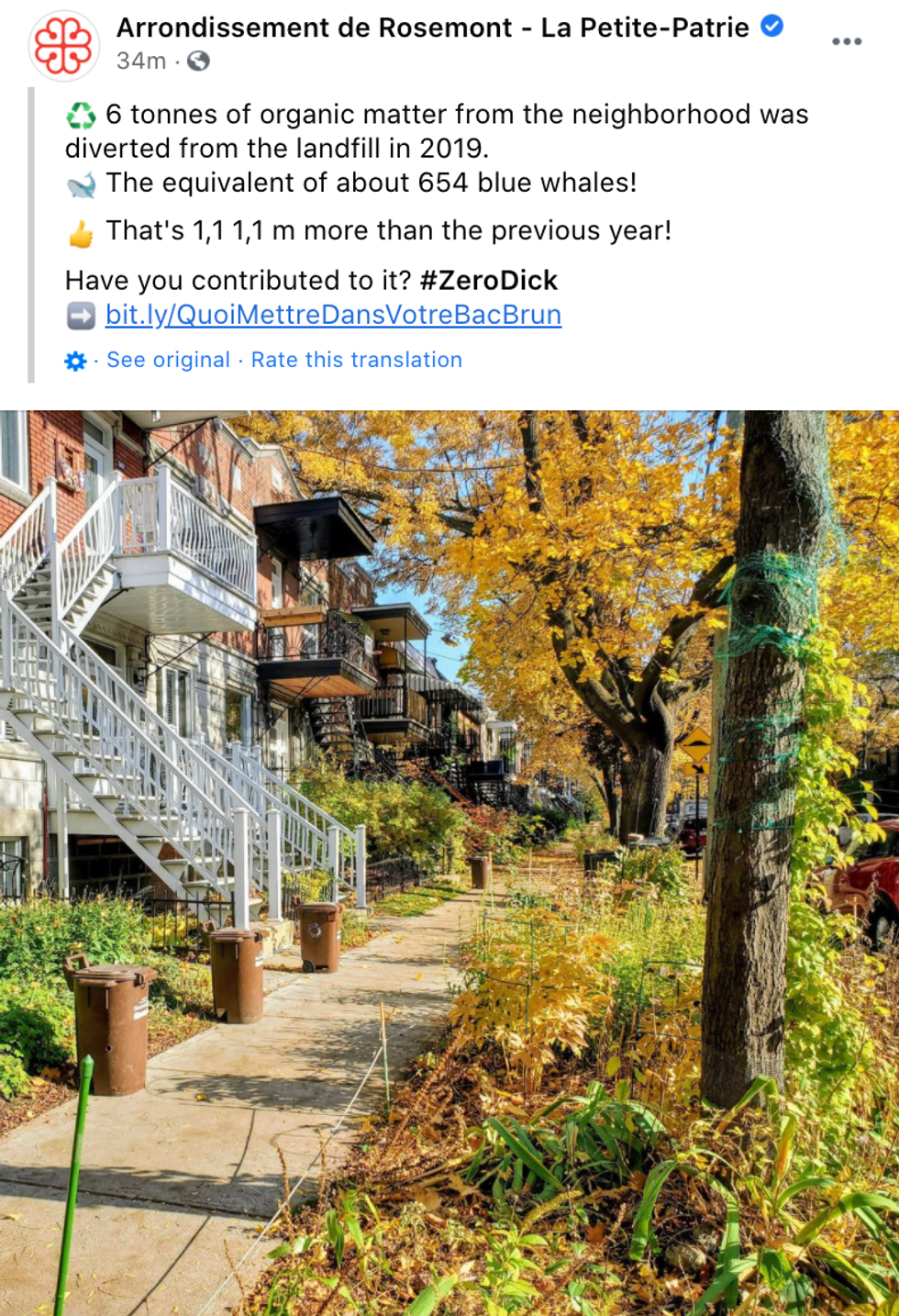Facebook Accidentally Translated Montreal's #ZéroDéchet Initiative To #ZeroDick... LOL
Anglo Quebecers know that scrolling through Facebook also means scrolling through a heck of a lot of translated text. But we couldn't even be mad about a recent mix-up on the Arrondissement de Rosemont–La Petite-Patrie Facebook page — we were laughing too hard.
The post, from November 11, talks about Montreal's #ZéroDéchet initiative or #ZeroWaste in English.
According to the post, "6 tonnes of organic matter from the neighbourhood was diverted from the landfill in 2019."
OK, so far pretty normal... But then, instead of hashtagging #ZeroWaste, it hashtags #ZeroDick. LOL.
Forgive us for having an immature sense of humour but thank-you for the laugh. We needed it right about now. It is #NoNutNovember after all.
Editor's Choice: Grimes Got Over $90,000 In Funding As A Quebec Artist & People On Twitter Have Questions
20 Billion
Translations per day powered by Facebook
The borough didn't seem too bothered. We pointed out the error via Facebook message and got this reply:
"We take good note. You have the option below the post to rate the translation to notify Facebook, that seems to appear only for those who see the translation. Thanks, have a good day!"

This also got us thinking about how Facebook translations actually work.
We reached out to Facebook's media relations department and here's what we found out:
- Facebook uses complex artificial intelligence (AI), built by Facebook engineers, to translate content.
- It currently supports 98 languages and more than 78 pairings (for example, English to French or Spanish to Arabic).
- It accounts for grammar, semantics, idioms, and slang of the source language (input) as well as the target language (output).
- Its AI models translate entire sentences using context rather than phrase-based approaches. This means AI can account for languages with different word orderings.
- We're a long way from AI-generated translations that are as fluent and accurate as native speakers because there are still open challenges with teaching AI to translate.
- Examples of challenges: the context of the sentences that come before and after, new slang, and lack of public training data in uncommon languages.
When we spoke to Facebook, a spokesperson told us the team had already identified the error and was working on a solution.
The error has since been corrected. But it was fun while it lasted.

